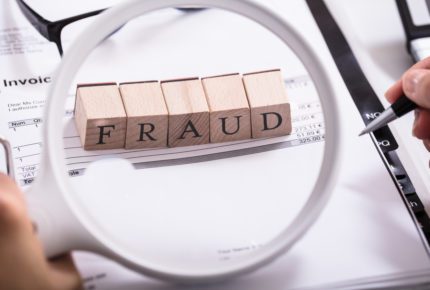

Engaging in dishonest practices to obtain services is a serious criminal offence in England and Wales, carrying equally as severe penalties for those found guilty, even if they are first-time offenders. If you or someone you care about is facing charges for obtaining services dishonestly or is already being prosecuted, it is crucial to gain a comprehensive understanding of the offence and its implications. In this article, we will outline the offence of obtaining services dishonestly and answer common questions for first-time offenders.
What is the offence of obtaining services dishonestly?
Obtaining services dishonestly is an offence under the Fraud Act 2006. According to Section 11 of the Act, a person is guilty of this offence if they obtain services for themselves or another by a dishonest act, and did not pay for the service, or did not pay the appropriate amount for the service.
To secure a conviction for obtaining services dishonestly, the prosecution must prove the following elements:
- Obtaining of services. The defendant must have obtained services. Services in this context can include any service provided in any circumstances, such as utilities, internet services, professional services, or retail services.
- The defendant must have acted dishonestly. This typically involves an objective test, whereby dishonesty is judged according to the standards of reasonable people, not simply what the defendant thought was honest or dishonest.
- Failure to pay. The defendant must not have paid for the service, or not have paid the appropriate amount for the service. This can include cases where the defendant deceives the service provider into believing that payment has been made.
- Intention to avoid payment. The defendant must have known that the service was made available on the basis that it was chargeable, and they must have intended to avoid or reduce payment for the service by their dishonest act.
Penalties for obtaining services dishonestly include imprisonment, fines, or both, and the offence can be tried either summarily in the Magistrates’ Court or on indictment in the Crown Court.
What are some examples of obtaining services dishonestly?
Examples of this offence include:
- Internet subscription services – where a person uses someone else’s credit card information without their permission to pay for a subscription service like Netflix or Spotify.
- Utilities fraud – where a person manipulates their utility metre to make it appear as if they are using less electricity, gas, or water than they actually are, thereby dishonestly obtaining these services for less than their actual cost.
- Telecommunications fraud – where a person uses another person’s phone line without their consent to make long-distance or international calls, thereby obtaining these services dishonestly.
- Transportation fraud – where a person alters or counterfeits a ticket for a train, bus, or aeroplane to travel without paying the correct fare.
- Restaurant dine and dash – where a person consumes food and drinks at a restaurant and then leaves without paying, which is a form of obtaining services (in this case, food service) dishonestly.
- Gym membership fraud – where a person uses someone else’s gym membership card to access the gym facilities without paying the membership fee.
- Software piracy – where a person uses cracked software or games without paying for them. This is a form of dishonestly obtaining services because the individual is using the product without paying the creator or distributor.
What happens if you are suspected of committing the offence of obtaining services dishonestly in the UK?
In the UK, being suspected of obtaining services dishonestly falls under the Fraud Act 2006. The specific offence is covered in Section 11 of the Act. If you are suspected of such an offence, several things could happen:
- The police or other relevant authority (such as an employer or a trade body), may conduct an investigation. The investigation may include interviews with you and other parties involved, as well as gathering evidence such as documents, CCTV footage, or other physical or digital evidence.
- Arrest and interview. If the police have reasonable grounds to suspect that you have committed the crime, they may arrest you. After arrest, the police will usually conduct a formal interview under caution. You have the right to legal advice and can have a solicitor present during the interview. The purpose of the interview is to gather evidence and give you the opportunity to provide your account of the events. Anything you say in the interview can be used as evidence if the case goes to court.
- Charge or release. Following the interview, the police will decide whether there is sufficient evidence to charge you with the offence. If there is not enough evidence, you will be released without charge. If there is enough evidence, you may be charged with the offence. The decision to charge is usually made in conjunction with the Crown Prosecution Service (CPS), who will consider whether there is a realistic prospect of conviction and whether a prosecution is in the public interest.
- Court proceedings. If you’re charged, the case will usually go to court. For fraud offences, this will often be the Crown Court, although some cases may start in the Magistrates’ Court. You will have the opportunity to plead guilty or not guilty. If you plead not guilty, a trial will take place where the evidence will be presented and a verdict will be reached. If you’re found guilty, the court will decide on a suitable punishment, which could include a fine, community service, or imprisonment.
- The sentence for obtaining services dishonestly will depend on the circumstances of the case, including the value of the services obtained, the extent of the dishonesty, and any previous convictions. If you are a first-time offender and the value of the services obtained was relatively low, the court may impose a more lenient sentence.
If you’re suspected of committing a crime, it is always important to seek legal advice as early on in the process as possible. Expert fraud lawyers will guide you through the process and help you understand your rights and options, which could make all the difference to the outcome of your case.
What is the sentence for obtaining services dishonestly in the UK?
Obtaining services dishonestly is governed by the Fraud Act 2006 and if you are found guilty of the offence under Section 11, you could face up to 5 years’ imprisonment.
When sentencing, the judge will consider factors related to the offender’s culpability and the level of harm caused by the offence. Aggravating factors could include: the offence being part of broader organised crime; it being a repeat offence; the commission of other crimes alongside the offence; and any severe impact on the victims. Mitigating factors could include: it being a first-time offence; the offender showing remorse or attempting to repair the harm caused; good character or exemplary conduct elsewhere; and the offender’s young age or lack of maturity.
If it is determined that the offender is still in possession of services or benefits obtained through the fraud, know that a confiscation order may be made by the Crown Court under the Proceeds of Crime Act 2002.
Will I go to prison if it is my first time committing the offence of obtaining services dishonestly?
This is a hard question to answer because the decision to send someone to prison for their first offence depends on so many factors. This offence is indeed considered to be a serious one and judges rarely opt to suspend sentences, but in exceptional cases that can happen.
First-time offenders do, however, have an advantage in the sense that this being their first offence is usually seen as a mitigating factor. As such, regardless of the sentencing guidelines, the first-time nature of the offence might lead to a reduced sentence, possibly by several months or even years.
To better understand whether a first offence of obtaining services dishonestly will result in a prison term, seek the advice of a seasoned fraud defence solicitor. They can shed light on how similar cases are typically handled, evaluate the strength of your defence, and identify other mitigating factors that may influence the outcome.
Where to get further help
When facing charges or a trial for obtaining services dishonestly, it is common to have multiple concerns and questions about the ensuing proceedings. Seeking expert legal advice at the earliest opportunity can greatly impact the outcome. At Stuart Miller Solicitors, we might even be able to have the case dropped before it reaches trial, particularly for first-time offenders. Contact our team today for a free, friendly, and no-obligation consultation.
OUR COMMITMENTS TO YOU:
-
Responsive
A legal expert will consult you within 24 hours of making an enquiry.
-
Empathetic
We will always treat you with trust, understanding and respect.
-
Specialised
Your case will be handled by an expert who specialises in your type of offence.
-
Proactive
We will take early action to end proceedings as soon as it is practically and legally possible to do so.
-
Engaged
You will be kept updated on your case at all times. We will provide a named contact available to answer your questions.
-
Caring
We understand this is a difficult and stressful time for you and your family. Our team will support you every step of the way.
-
Tenacious
We will never give up on your case. We fight tirelessly to get you the best possible outcome.
